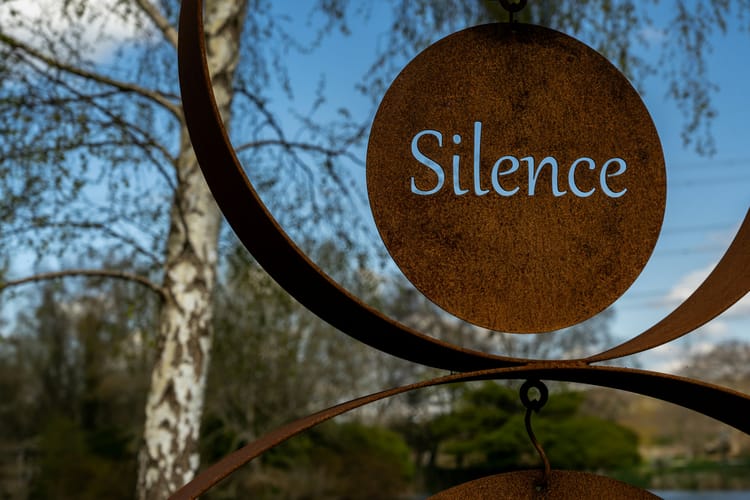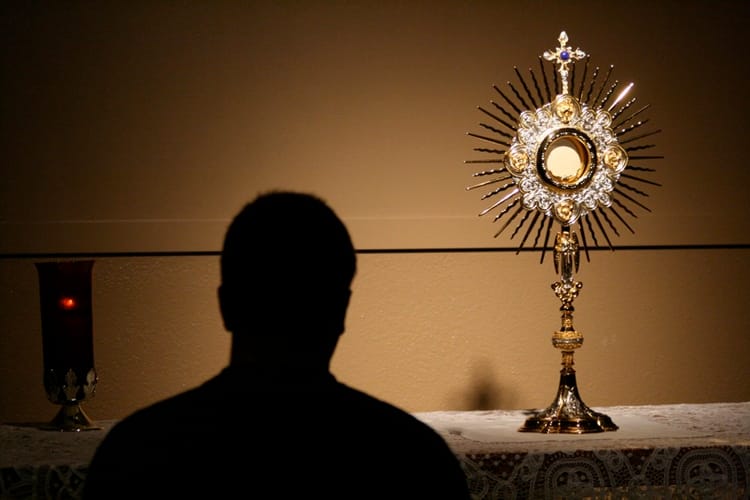Selling Authority: Masculinity in Crisis

The crisis of manhood won’t be solved by culture-war slogans or borrowed masculinity. True authority is forged in the Confessional, at the altar, and in the daily labor of leading the domestic church.
There seems to be a “crisis of manhood” in the modern world. Some, perhaps a great deal, of the alarm is manufactured: the result of shrewd individuals identifying a demographic to sell things to via Facebook ads and endorsements on popular podcasts. Yet as someone who has seriously struggled with his manhood and found many brothers locked in the same battle, I know there is a legitimate need for authentic masculinity to be modeled, taught, and learned.
Authority is the issue underlying many of our woes. Lack of authority was ultimately at the root of the dissatisfaction I experienced in many Evangelical communities, and authority was a central pillar on which I rested my return to the Catholic Church. Authentic, properly ordered authority gives us headship over our domestic church and allows us to pray confidently over our children and home. It is why when the centurion told a man to go and do something, he knew it would be done.
Like our spiritual and physical health, authority can be compromised. If we abuse ourselves or abuse those in our care, our authority becomes disordered and, thus, diminished. Leading lives of self-service, wrath, and sexual or monetary conquest demotes us in the eyes of the people we would have authority over. Imbalances in authority in marriages confuse children and breed resentment between husband and wife.
Men have, perhaps rightly, perceived a closing in, a constricting, around their masculinity. What’s more, they are being told by gurus and Green Berets and even the clergy that they are under attack and must engage or be resigned to certain annihilation. Perhaps the culture or the world at large is at war with masculinity; that is above my pay grade and, frankly, so far out of my control that writing about it would be a dishonor and disservice to you.
But I can write about how we men diminish, sabotage, or disorder our authority, and I believe that focusing on what we can control is a far more fruitful endeavor than fighting the Culture Wars.
A Long-Form Confession
I have struggled with alcohol most of my life. By God’s grace and pharmaceutical intervention, sobriety is now a comfortable norm for me, and I am grateful for it.
For most of my career, I have worked a lot: seven or eight hundred hours of overtime annually at a power plant, or as a midnight-shift boiler operator. These jobs forced me to make sacrifices—of time, of intimacy, of presence—that do not seem worth it in hindsight. When I was home, I would often lean on the demands of my career, sitting comfortably behind the excuses others made for me: “He works so much.” “He must be so tired.” “He deserves a break.”
If I felt someone was too demanding, I would lash out from atop Pride’s noble steed, the High Horse: “You don’t know what it’s like to work midnights.” “You’d be complaining if I wasn’t making the money I do.”
By God’s grace, I never really struggled with pornography, and I heap credit on Our Lady and her Rosary for sweeping out whatever sticky webs that pernicious sin left behind. But until I began to understand human dignity and the Catholic worldview, I never considered it especially harmful. I could not, and would not, see how negatively it affected my perception of things that are gifts from God when properly ordered.
I have also put the Iron God before the True God, as well as my family. Any notions of competition or serious recognition for my strength or physique are far in my past, but my training never reflected that. I would eat, sleep, and train like a competitive bodybuilder, placing undue strain on both myself and my family. No matter how big I got, it was never enough, and that hunger alone is the mark of disordered discipline.
This may read like a long-winded confession, and I want it to. I want you to know that I have shirked my duties, sold my headship for instant gratification, and reduced my authority to the point that I could not have commanded a dog, let alone one of my kids. And that is to say nothing of the demonic, which I have a responsibility to guard my family and home from.
Stop Looking Outward
I spent years looking outward for solutions and causes. I won’t name-drop, but I’m sure you can guess one or two people or places I found as I attempted to reclaim my masculinity. Yet it wasn’t until I began looking inward, and being brutally honest with myself about my life, that clarity started to dawn.
The truth is that we are too often looking outward, listening to external voices “tickling our ears” when we need to examine ourselves diligently, thoroughly, and with God’s grace.
We’re so spiritually starved that we’ll baptize anything that gives us a second helping of what feels like truth. A guest on a podcast shares a compelling insight or quotes a bit of Scripture, and suddenly he’s treated like a spiritual guide. We start looking to voices outside the Church to tell us who we are, what to do, and how to lead.
But impact isn’t the same as authority. Emotional resonance is not the same as spiritual truth. We are sons of the Church, not orphans chasing breadcrumbs from those who don’t even believe in the Eucharist.
Too many of us are turning to gurus and dojos when what we need is the Confessional and softer hearts—ones that hear our kids’ requests to play or our wives’ needs as gifts and opportunities, not burdens and obstacles. Too many of us are trading our crown of thorns for one made by the world.
Authority in Practice
Let’s be clear: there are things in your life that are actively diminishing your authority and muting your masculinity. And while complaining on the golf course, the BJJ mat, or at the bar about how “you don’t get no respect” may feel good, it does nothing but further compromise your manhood and your presence.
Spending your free time listening to podcasts or reading the latest book by a Navy SEAL might assuage your ego or help you drop a few pounds, but it isn’t forming you in the way God forms kings.
Look, I know the urge and drive to fight, to bench heavy, to work until you don’t remember what day it is. Men are built for that kind of labor. But too many of us are like sheepdogs living in apartments: no matter how many runs or frisbee throws we get, we want to work the fields. There is no substitute.
You and I are made for lifting—lifting ourselves, our families, and anyone under our authority up in prayer. We’re made to fight—fight the Devil and his forces. Our labor is spiritual, then corporeal, not the other way around. Clean the inside of the cup first, then worry about the outside.
We can continue with habits and behaviors that undermine our authority. What we cannot do is keep trying to blame anyone but ourselves for the diminished authority and compromised masculinity that result from those decisions.
Pick Up the Cross
You want to be a man? Take your family to Confession. Pick up your cross. Love God. Love your neighbor. Lead grace at the table, even at the restaurant. Study your wives and children with as much care and attention as the Devil does. Weep before the Blessed Sacrament. Get up early to pray for your household, your neighbors, and your community.
We lament the Church’s lack of religious vocations, yet so many of us fathers aren’t holding up our end of the bargain.
You want more priests? You want devotion to the Eucharist? You want to fight for Truth? Put the beer down. Rack the barbell. Teach your kids about Jesus. Show your wife that marriage should be a glimpse of Heaven on earth. Be the rest for your weary coworkers. Be the peacekeeper in the family fight.
Assert and nourish your rightful authority as Priest, Prophet, and King by doing what the greatest High Priest, Prophet, and King did: Lay your life down. Pick up your cross. Love God. Love your neighbor.
And if we want the world to see Christ, they have to see Him in us first.
Rob Sexton is a Catholic writer and the creator of Costly Things, where he publishes essays and reflections on faith, masculinity, and the interior life. His work has been featured in Catholic Exchange and The Loop, including the viral article “The Nightly Examen”.




Member discussion